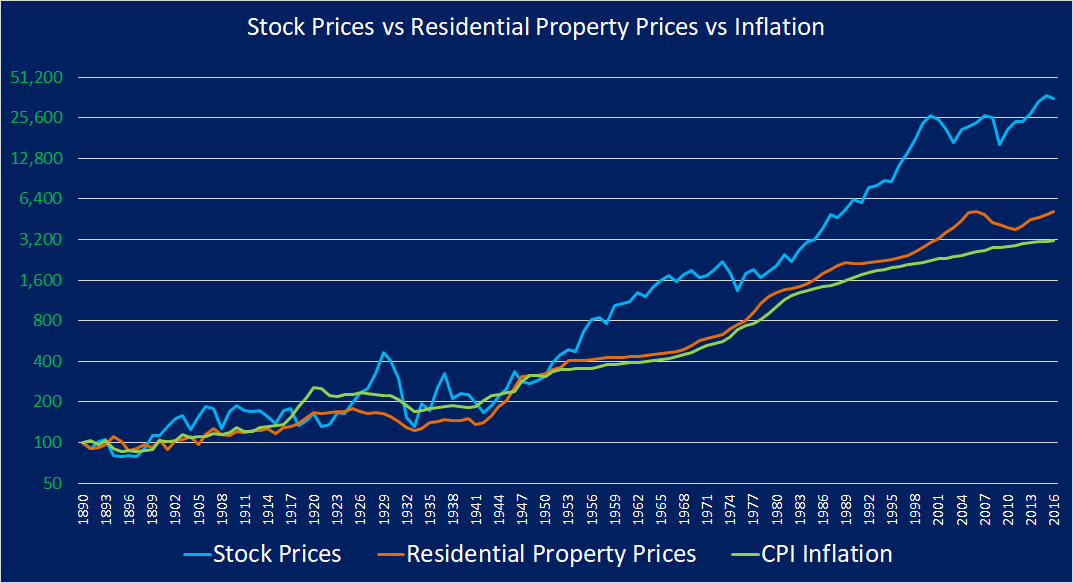I am often asked about investing in stocks vs property, as owning physical residential real estate is an understandably popular investment choice in Hong Kong and other major cities. Urban professionals have seen apartment prices, and their rents, rise faster than inflation and almost as quickly as their salaries, and there is a level of tangibility and physical security some investors get from owning an apartment, even a far away one with a high maintenance fee, than from owning a stock of even the most profitable company. Much of my investor education is spent on explaining real estate investment trusts (REITs), which, rather than making you choose between investing in stocks vs property, provide the shareholder with appreciation exposure and rental income from a diversified portfolio of different properties with the liquidity, disclosure and flexibility advantages of a stock.
For reference, I have decided to plot the long-term performance of stocks vs property vs inflation over 125 years of data, from 1891 to 2016, according to the spreadsheets maintained on Robert Shiller’s site at Yale. For simplicity of both calculation and comparison, these measure the rise in prices of US stocks vs residential real estate and do not include dividends or rental income, but it is clear that stock prices have risen 7x more than property prices over this period, with most of the change happening since WWII. This is understandable given how much more the typical listed company has grown and changed over the decades and made its business more profitable, compared with how a house 100 years ago is still a house today.
Keen to hear your thoughts,
Tariq

